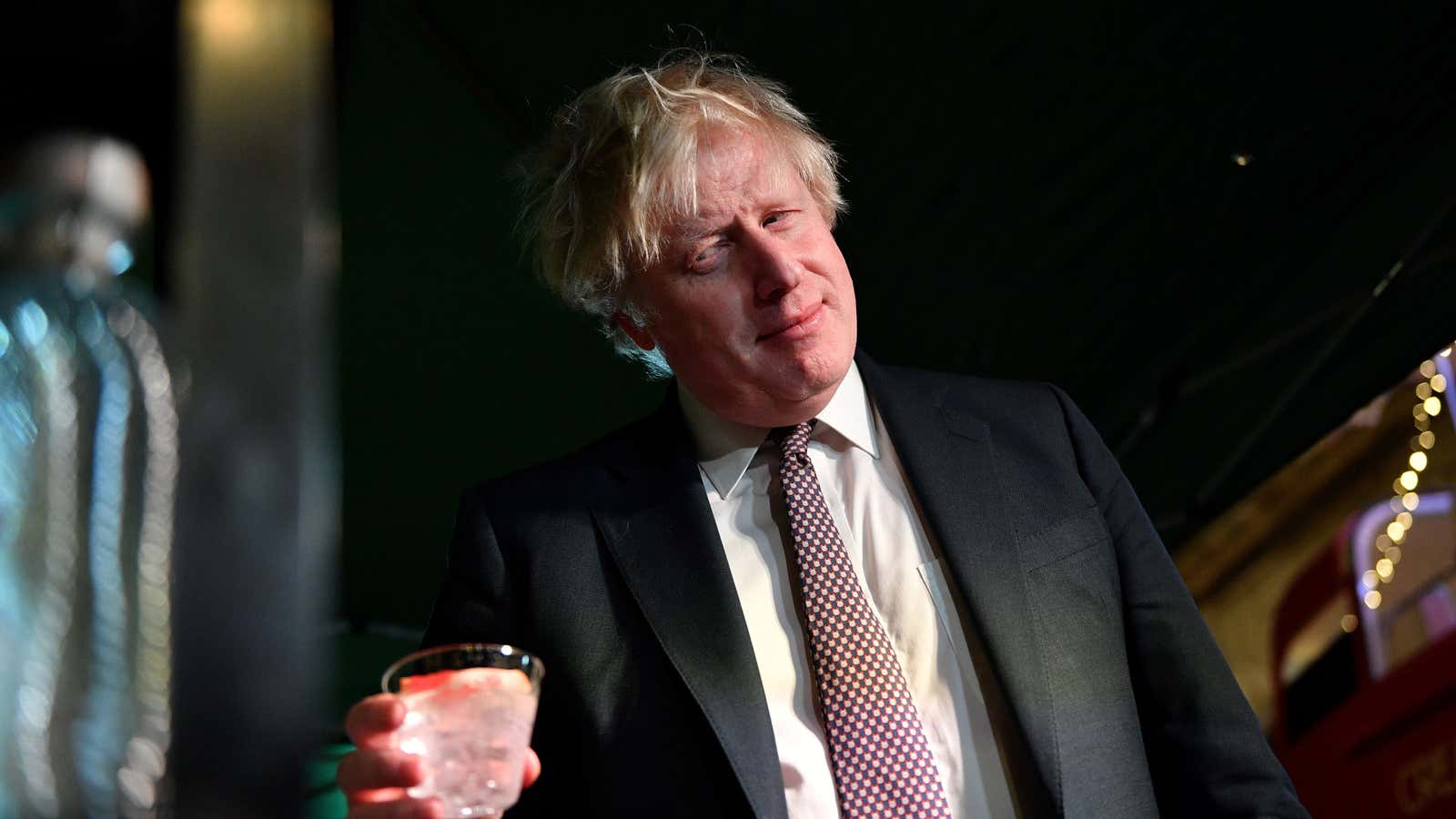“Excessive consumption of alcohol” was a key feature of a series of unauthorized gatherings by UK government officials during 2020’s strict lockdowns, says an official report (pdf) finally released yesterday (Jan. 31). UK prime minister Boris Johnson is under intense pressure.
The report concluded that a number of the gatherings, which took place from May 2020 up until April 2021, “should not have been allowed to take place or to develop in the way that they did.” The police are investigating alleged law-breaking, including a party at Johnson’s own apartment.
The report recommended “a clear and robust policy” around alcohol in the workplace. But the heavy boozing culture at Downing Street, where the biggest national decisions are made, does not reflect current US and UK attitudes toward workplace drinking.
Downing Street’s drinking no longer the norm
Johnson apologized once again yesterday for the parties, which reportedly involved a suitcase full of wine and a “bring-your-own-booze” event.
Drinking at work was standard in some UK industries prior to the pandemic, particularly among high-earning white collar workers. A culture of boozy lunches prompted the insurance company Lloyds of London to ban the practice in 2017, followed two years later by a more expansive rule applying to anyone entering the building.
Such traditions started to fall by the wayside as more people began working rom home during the pandemic. A majority of British workers said they did not drink more with their colleagues, according to a YouGov survey (pdf) conducted with the charity Drinkaware between August and September 2020.
The same survey found workers were consuming less alcohol at employer-sponsored events during the first year of the pandemic. Respondents weren’t particularly attached to workplace boozing, either, with just 34% saying they preferred work events that involved alcohol.
Some employers turn away from office drinking
On the other side of the Atlantic, some US companies have moved away from promoting office drinking in recent years.
Salesforce, for example, reiterated a no-alcohol policy back in 2017 even as some of its competitors continued to stock office refrigerators full of kegs. Other companies stopped serving alcohol at holiday events around this time in response to rising reports of sexual assault in the office.
Against this backdrop, drinkers in both the UK and US have started to rethink their relationship with alcohol. 18% of UK adults and 19% of US adults reported they would try to abstain from drinking this month as part of dry January.
